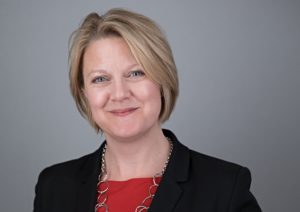
 Comms Business spoke to Eli Katz (pictured right), co-founder and chairman (as well as CEO and founder of XConnect), David Cargill, senior director product management at Vonage and chair of the operations working group, and Tracey Wright, director at Magrathea and head of the industry developments working group, to find out more about why the time for change is now and what this means for the organisation moving forward.
Comms Business spoke to Eli Katz (pictured right), co-founder and chairman (as well as CEO and founder of XConnect), David Cargill, senior director product management at Vonage and chair of the operations working group, and Tracey Wright, director at Magrathea and head of the industry developments working group, to find out more about why the time for change is now and what this means for the organisation moving forward.
Katz explained that switching off PSTN services will be the biggest change in the telecoms industry for over 30 years. Back in 2004, when the organisation was founded, IP telephony services were the “the new boys on the block” but over the next decade the migration to all-IP will be almost complete.
He added, “We are no longer a niche market. We are now the mainstream communications. We’ve gone from simple voice to now voice, video and messaging. That’s been a phenomenal journey that has undoubtedly accelerated in pace by the impact of Covid.”
Cargill put the impact of the pandemic into context. He said, “We’ve moved forward approximately one decade in one year. The adoption of those newer services – including voice, video and messaging – has literally taken that journey forward in a significant, multimodal way.”
New name, same identity
These market movements made the organisation reflect on whether its former name was still fit for purpose, and the process was an organic one. Wright said that choosing a new name was relatively straightforward. She said, “We put it out to membership to gather ideas at the very first stage, and then it went to a smaller committee to narrow down and vote. Then, finally, the council all agreed. It was a very democratic process and, considering how many of us there are, it was a fairly easy process.”
 Cargill (pictured left) said that bringing the word “council” into the new name was a symbolic choice. The word, he said, was a reference to helping to lobby and represent the industry. It is also a reflection of its trade body attributes, as well as making its objectives clear “to the stakeholder community”.
Cargill (pictured left) said that bringing the word “council” into the new name was a symbolic choice. The word, he said, was a reference to helping to lobby and represent the industry. It is also a reflection of its trade body attributes, as well as making its objectives clear “to the stakeholder community”.
Katz added, “We are now communications full stop. [All-IP] is how the world is now communicating. This is the migration to 100 per cent UK coverage and, to put that in perspective, this is a much bigger, much more impactful change than the digital TV switchover.
“This is the biggest change industry has probably ever gone through. That means, as an industry body, we need to help that journey. Right across our members, working together with government and working together with the end users.”
There is not currently a clear, coordinated communications plan to help organisations across the UK to understand the path ahead. Cargill explained that this is “opening the door to scammers and mis-selling” if the messaging is not understandable.
Protecting competition
If the switch off messaging is not driven by industry consensus, there is a risk that it could harm competition in the communications market. Katz said that, during the 80s and 90s, a lot of work was done to move the UK telecoms industry away from its monopolistic heritage towards a competitive industry. This, he explained, unlocked numerous advantages including innovation, reduced costs, and improved service.
Katz warned, “If we don’t play the cards right, we could end up reverting to a monopolistic or duopolistic environment. That would be an absolute disaster for UK business and UK consumers.”
In addition, Cargill cautioned that there is a risk of “unravelling the gains we made with net neutrality” as you will be “handing the power back to the access provider”.
 The shift to all-IP could also create unmanageable complexity for services that currently run on the PSTN. Examples include alarm pendants and traffic lights. Wright (pictured right) explained, “It would be almost impossible for a room full of people to come up with every possible scenario, but if you can feed what’s happening through to the people on the ground, you’re going to start getting feedback that we haven’t even thought of.
The shift to all-IP could also create unmanageable complexity for services that currently run on the PSTN. Examples include alarm pendants and traffic lights. Wright (pictured right) explained, “It would be almost impossible for a room full of people to come up with every possible scenario, but if you can feed what’s happening through to the people on the ground, you’re going to start getting feedback that we haven’t even thought of.
“It doesn’t need to be a complex message. But if we can start filtering through that this is happening, all the niche providers will start thinking ‘how does this affect me’? And start asking those questions of their providers because, ultimately, it’s their service provider who needs to sort this out for them. Recent discussions with Ofcom have been encouraging but a lot of work remains.”
In terms of what comes next for Comms Council UK, Katz said the organisation will simply “continue to be the voice of the industry”. He added, “We will be a convener of best practice and problem solving. More minds are better than one, so we will [come together and] identify problems, come up with solutions and develop the standards. We will work with all aspects of the industry, both the standards development and the regulatory side, as well as the end users.”
